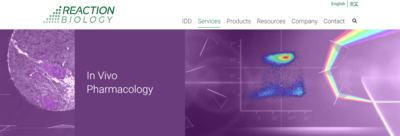Pharmacokinetics (PK) is a fundamental aspect of drug discovery for the characterization of drug candidates in hit-to-lead and lead optimization programs in regards to adsorption, distribution, metabolism, and excretion after administration to mice.
Setups:
- Single-dose and multiple-dose studies for up to 3 weeks.
- Anti-cancer therapeutics testing can be performed on tumor-bearing mice.
Routes of administration:
- Intravenous, intraperitoneal, oral, subcutaneous, intratumoral, AlzetTM pump, and others upon request.
Samples:
- Whole blood, plasma (EDTA, heparin), serum, tissues/organs, excreta (urine, feces)
Bioanalysis of the samples is performed by our collaborator Pharmacelsus GmbH
Sample Preparation:
- Protein Precipitation and Liquid-Liquid Extraction
- Hybrid protein precipitation / solid phase extraction (PPT/SPE)
Substance Identification:
- Immunoassay
- TSQ Quantum LC-MS/MS Systems
- Orbitrap Q-ExactiveLC-MS System
- LC-Q-TOF (X500B)
Deliverable:
- Detailed report including animal weight and behavior
- Graphical presentation of a time course of substance quantity
- Calculation of common PK parameters
Options:
- Dose proportionality
- Organ distribution, excretion, mass balance
- First pass effect
We can conduct pharmacokinetic (PK) studies on animal models:
- Mice at our facilities in Hershey, Pennsylvania, USA and Freiburg, Germany
- Rats at our facilities in Hershey, Pennsylvania, USA and Heidelberg, Germany
Please contact us for additional information.



